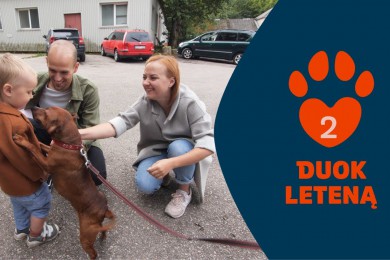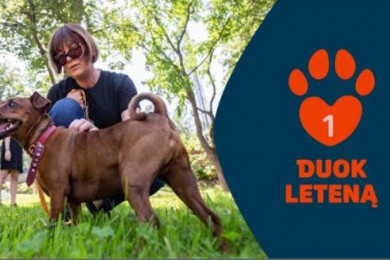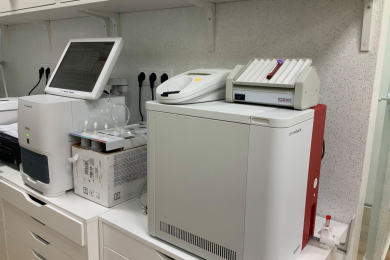COMPUTED TOMOGRAPHY in 8 drambliai referral veterinary hospital
Computed Tomography
Computed tomography (CT) for dogs and cats is an advanced imaging diagnostic method used to evaluate in detail the condition of animals' internal organs, bones, blood vessels, and other structures. Computed tomography allows for the creation of comprehensive, three-dimensional images that provide much more information than conventional X-ray examinations.
When is a computed tomography scan performed?
Computed tomography is performed in cases where other diagnostic methods, such as ultrasound or X-ray, do not provide sufficient information or a more detailed image is required. This examination is often used to accurately diagnose various diseases, injuries, and anomalies.
.png)
In what cases should you bring your pet for a CT scan?
- Head and spine problems:
A CT scan helps diagnose neurological problems such as brain tumors, inflammation, hernias or spinal cord injuries. This test is especially recommended for head injuries, seizures or back pain.
- Nasal and sinus problems:
In the case of chronic nosebleeds, difficulty breathing, or tumors in the nasal area, CT allows an accurate assessment of these structures and detection of possible pathologies.
- Bone and joint diseases:
CT is excellent for evaluating bone fractures, joint dysplasia, osteoarthritis, or tumors. It allows the veterinarian to detect lesions in detail that may not be visible on x-rays.
- Tumors and other formations:
If tumors in internal organs (lungs, liver, spleen) or other parts of the body are suspected, CT helps to determine their size, location and spread. This allows for more accurate planning of surgical operations or other treatment methods.
- Examinations of the chest and abdomen:
A CT scan is used to evaluate organs in the chest and abdomen, such as the lungs, heart, liver, spleen, and kidneys. It helps to identify diseases of the lungs or other internal organs, including tumors, inflammatory processes or foreign bodies.
- Injuries:
In animals that have suffered serious injuries, such as traffic accidents or falls, CT is used to evaluate broken bones, damage to internal organs, or bleeding. This makes it possible to quickly and accurately assess the extent of the injury and predict further treatment.
- Dental and jaw diseases:
CT is great for detecting root infections, dental tumors, jaw fractures, or other oral problems.

What should I know before having a CT scan?
- General anesthesia: In most cases, CT scans require general anesthesia to keep the pet calm and still during the examination. This is necessary to obtain high-quality and accurate images.
- Preparation for the examination: Before the examination, the veterinarian may inform you that your pet will not eat for twelve hours, as general anesthesia will be applied. Your veterinarian will give you detailed instructions on how to prepare.
- Duration of examination: CT examination lasts from 15 to 45 minutes, depending on the area being examined and the condition of the patient, but the procedure time may be longer due to preparation for anesthesia and wakefulness after it. After the examination, the pet may need some time to recover from anesthesia.
When to see a veterinarian for a CT scan?
If your pet has persistent, unexplained health problems such as:
- Pain of unknown origin
- Seizures or neurological symptoms
- Nosebleeds, breathing problems
- Chronic cough, shortness of breath or abdominal pain
- Swellings, formations or suspected tumors
- Serious injuries or acute and chronic musculoskeletal disorders
- Unclear hematological changes.
In these cases, the veterinarian may recommend a CT scan to accurately diagnose and prescribe effective treatment.
A CT scan is an extremely valuable diagnostic tool that provides detailed information about your pet's health. A timely examination helps to identify diseases at an early stage and provides an opportunity to apply targeted treatment that can save your pet's life and improve the quality of life. In our veterinary clinic, this procedure is performed only by experienced and trained imaging specialists.



